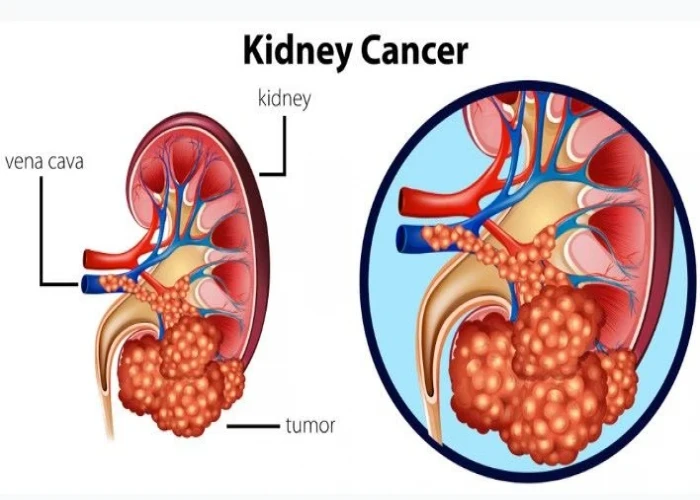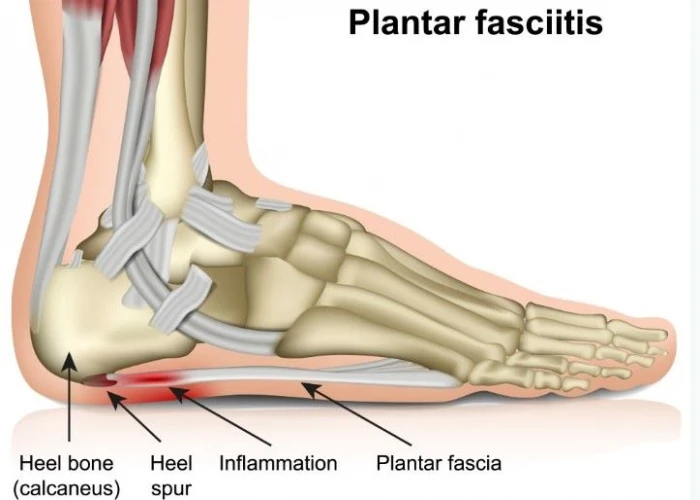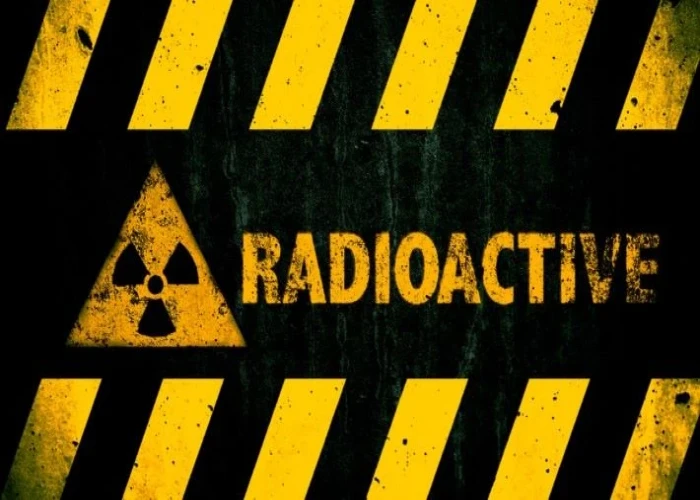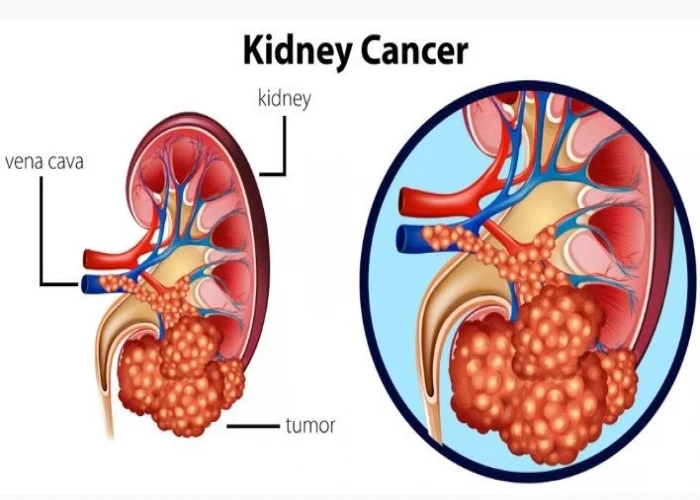 Welcome
Welcome
“May all be happy, may all be healed, may all be at peace and may no one ever suffer."
Kidney cancer

Kidney cancer, also known as renal cancer, is a type of cancer that develops in the kidneys, which are two bean-shaped organs located in the back of the abdomen. The most common type of kidney cancer in adults is renal cell carcinoma.
The exact cause of kidney cancer is unknown, but it is thought to be related to a combination of genetic and environmental factors, such as smoking, obesity, high blood pressure, and exposure to certain chemicals.
Symptoms of kidney cancer may include:
- Blood in the urine
- Back pain or pain in the side that doesn't go away
- Unexplained weight loss
- Fatigue
- Fever
- Swelling in the legs or ankles
- Anemia
Treatment for kidney cancer may depend on the stage of the cancer and the individual's specific needs. Some options may include:
- Surgery: The most common treatment for kidney cancer is surgery to remove part or all of the affected kidney. In some cases, minimally invasive procedures such as laparoscopic surgery or robotic-assisted surgery may be used.
- Radiation therapy: This treatment uses high-energy radiation to kill cancer cells.
- Immunotherapy: This treatment uses medications to stimulate the body's immune system to attack cancer cells.
- Targeted therapy: This treatment uses medications to target specific proteins or other molecules that are involved in the growth and spread of cancer cells.
If you are experiencing symptoms of kidney cancer, it is important to see a healthcare provider for a proper diagnosis and appropriate treatment. Regular check-ups and screenings may also be recommended for those at high risk for kidney cancer.
Research Papers
Disease Signs and Symptoms
- Blood in urine (hematuria)
- Loss of appetite
- Weight loss
- Fatigue (Tiredness)
- Fever
- Kidney pain
- Kidney cancer
Disease Causes
Kidney cancer
It's not clear what causes most kidney cancers.
Doctors know that kidney cancer begins when some kidney cells develop changes (mutations) in their DNA. A cell's DNA contains the instructions that tell a cell what to do. The changes tell the cells to grow and divide rapidly. The accumulating abnormal cells form a tumor that can extend beyond the kidney. Some cells can break off and spread (metastasize) to distant parts of the body.
Disease Prevents
Kidney cancer
Taking steps to improve your health may help reduce your risk of kidney cancer. To reduce your risk, try to:
- Quit smoking. If you smoke, quit. Many options for quitting exist, including support programs, medications and nicotine replacement products. Tell your doctor you want to quit, and discuss your options together.
- Maintain a healthy weight. Work to maintain a healthy weight. If you're overweight or obese, reduce the number of calories you consume each day and try to be physically active most days of the week. Ask your doctor about other healthy strategies to help you lose weight.
- Control high blood pressure. Ask your doctor to check your blood pressure at your next appointment. If your blood pressure is high, you can discuss options for lowering your numbers. Lifestyle measures such as exercise, weight loss and diet changes can help. Some people may need to add medications to lower their blood pressure. Discuss your options with your doctor.
Disease Treatments
Kidney cancer treatment usually begins with surgery to remove the cancer. For cancers confined to the kidney, this may be the only treatment needed. If the cancer has spread beyond the kidney, additional treatments may be recommended.
Together, you and your treatment team can discuss your kidney cancer treatment options. The best approach for you may depend on a number of factors, including your general health, the kind of kidney cancer you have, whether the cancer has spread and your preferences for treatment.
Surgery
For most kidney cancers, surgery is the initial treatment. The goal of surgery is to remove the cancer while preserving normal kidney function, when possible. Operations used to treat kidney cancer include:
- Removing the affected kidney (nephrectomy). A complete (radical) nephrectomy involves removing the entire kidney, a border of healthy tissue and occasionally additional nearby tissues such as the lymph nodes, adrenal gland or other structures.
- The surgeon may perform a nephrectomy through a single incision in the abdomen or side (open nephrectomy) or through a series of small incisions in the abdomen (laparoscopic or robotic-assisted laparoscopic nephrectomy).
- Removing the tumor from the kidney (partial nephrectomy). Also called kidney-sparing or nephron-sparing surgery, the surgeon removes the cancer and a small margin of healthy tissue that surrounds it rather than the entire kidney. It can be done as an open procedure, or laparoscopically or with robotic assistance.
- Kidney-sparing surgery is a common treatment for small kidney cancers and it may be an option if you have only one kidney. When possible, kidney-sparing surgery is generally preferred over a complete nephrectomy to preserve kidney function and reduce the risk of later complications, such as kidney disease and the need for dialysis.
The type of surgery your doctor recommends will be based on your cancer and its stage, as well as your overall health.
Nonsurgical treatments
Small kidney cancers are sometimes destroyed using nonsurgical treatments, such as heat and cold. These procedures may be an option in certain situations, such as in people with other health problems that make surgery risky.
Options may include:
- Treatment to freeze cancer cells (cryoablation). During cryoablation, a special hollow needle is inserted through your skin and into the kidney tumor using ultrasound or other image guidance. Cold gas in the needle is used to freeze the cancer cells.
- Treatment to heat cancer cells (radiofrequency ablation). During radiofrequency ablation, a special probe is inserted through your skin and into the kidney tumor using ultrasound or other imaging to guide placement of the probe. An electrical current is run through the needle and into the cancer cells, causing the cells to heat up or burn.
Treatments for advanced and recurrent kidney cancer
Kidney cancer that comes back after treatment and kidney cancer that spreads to other parts of the body may not be curable. Treatments may help control the cancer and keep you comfortable. In these situations, treatments may include:
- Surgery to remove as much of the kidney cancer as possible. If the cancer can't be removed completely during an operation, surgeons may work to remove as much of the cancer as possible. Surgery may also be used to remove cancer that has spread to another area of the body.
- Targeted therapy. Targeted drug treatments focus on specific abnormalities present within cancer cells. By blocking these abnormalities, targeted drug treatments can cause cancer cells to die. Your doctor may recommend testing your cancer cells to see which targeted drugs may be most likely to be effective.
- Immunotherapy. Immunotherapy uses your immune system to fight cancer. Your body's disease-fighting immune system may not attack your cancer because the cancer cells produce proteins that help them hide from the immune system cells. Immunotherapy works by interfering with that process.
- Radiation therapy. Radiation therapy uses high-powered energy beams from sources such as X-rays and protons to kill cancer cells. Radiation therapy is sometimes used to control or reduce symptoms of kidney cancer that has spread to other areas of the body, such as the bones and brain.
- Clinical trials. Clinical trials are research studies that give you a chance to try the latest innovations in kidney cancer treatment. Some clinical trials assess the safety and effectiveness of potential treatments. Other clinical trials try to find new ways to prevent or detect disease. If you're interested in trying a clinical trial, discuss the benefits and risks with your doctor.
Disease Diagnoses
Disease Allopathic Generics
Disease Ayurvedic Generics
Disease Homeopathic Generics
Disease yoga
Kidney cancer and Learn More about Diseases

Plantar fasciitis

Hot flashes

Scarlet fever

Radiation enteritis

Stevens-Johnson syndrome

Umbilical hernia

Depersonalization-derealization disorder

Knee pain
kidney cancer, কিডনি ক্যান্সার
To be happy, beautiful, healthy, wealthy, hale and long-lived stay with DM3S.
